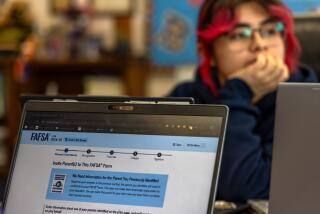BioWatch upgrade apparently postponed
WASHINGTON — Amid concerns about cost and reliability, the federal Department of Homeland Security has quietly postponed plans to buy technology that officials have long claimed could provide a life-saving upgrade of BioWatch, the nation’s system for detecting biological attacks.
One year ago, the department had said a contract for the new, automated system would be awarded by mid-May 2012, at an estimated cost of $3.1 billion during its initial five years of operation.
But in a three-sentence posting to a government website late last month, Homeland Security said it had shifted the time frame for soliciting final proposals to the final quarter of the year. The posting provided no explanation for the delay.
Scientists familiar with the matter said the development reflects a lack of confidence in the new technology, known as Generation 3.
A department spokesman, Peter Boogaard, declined to comment.
The postponement comes as Homeland Security Secretary Janet Napolitano and her aides are facing pointed questions about BioWatch from lawmakers of both parties in Congress. The program has cost taxpayers about $1 billion so far.
The senior Democrat on the House Homeland Security Committee, Rep. Bennie Thompson of Mississippi, as well as Republican leaders of the House Energy and Commerce Committee have sent separate inquiries to Napolitano asking for documents on BioWatch and citing shortcomings with the system that were reported in July by the Los Angeles Times.
Two House subcommittees have scheduled a hearing for Sept. 13 to discuss BioWatch and a recently concluded review of Generation 3 by the U.S. Government Accountability Office.
In a statement late Friday, the chairman of one of the subcommittees, Rep. Gus M. Bilirakis (R-Fla.), cited the multibillion-dollar commitment envisioned for Generation 3, calling it “one of the most costly at the Department of Homeland Security.”
“We must ensure that the development and procurement of the next generation of BioWatch is based on sound science and that we are getting an appropriate return on our investment,” Bilirakis said.
The Times article reported a range of deficiencies with both the existing BioWatch system and with the automated sensors intended for Generation 3.
At least 56 false alarms — including an incident that threatened to disrupt the 2008 Democratic National Convention — occurred through 2008, the article reported. Due to insufficient sensitivity, BioWatch would be unlikely to detect an actual attack. Moreover, field and lab tests of the Generation 3 prototypes have suggested that they could not be relied on to detect an attack because of insufficient durability and sensitivity.
The original, nonautomated system has been in place since early 2003, when President George W. Bush said that BioWatch would provide “the nation’s first early-warning network of sensors to detect biological attack.”
Once a day year-round, technicians collect a filter from each BioWatch air-sampling unit and deliver it to a local public health lab, which searches for the DNA of anthrax and a handful of other pathogens targeted by BioWatch. Since BioWatch’s inception, some have touted the promise of automated sensors — each a so-called “lab in a box” — which might speed detection of an attack and better enable authorities to dispense emergency medicines before those exposed became sick or died.
On Feb. 14, 2007, Jay M. Cohen, a Homeland Security undersecretary appointed by Bush, told a House committee that Generation 3 would likely be “four times cheaper to operate” than the existing, more manually dependent system. Generation 3 would also expand BioWatch from its present coverage of about 30 cities to 50 — communities that make up approximately 90% of the U.S. population.
On March 29 of this year, Dr. Alexander Garza, Homeland Security’s chief medical officer, told a House subcommittee that Generation 3 was “imperative to saving thousands of lives.”
Garza, appointed by President Obama, is among three witnesses scheduled to testify at the upcoming congressional hearing, according to a spokesman for the panel.
More to Read
Sign up for Essential California
The most important California stories and recommendations in your inbox every morning.
You may occasionally receive promotional content from the Los Angeles Times.











